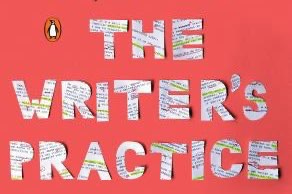It’s been awhile since I’ve made use of this space, but it’s because I suddenly found myself rather busy following the release of Open AI’s ChatGPT large language model.
I wrote about that a bit at my other newsletter.
At this point, I imagine just about everyone has heard about ChatGPT, and its ability to produce fluent English syntax in response to just about any prompt.
Lots of folks are declaring that ChatGPT is signaling the “end” of things — high school English, college essays, jobs for copywriters — but I would rather think about it in terms of beginnings than endings.
The big question is what kind of beginning it might be.
One possible beginning is a movement towards keeping students separate from any access to the technology by making them write entirely in class or subjecting them to digital monitoring of their work. I’m sure any number of education technology companies are looking at it as a potential gold rush as they develop their chatbot detection technology.
Quite honestly, the smart money would be on that kind of future, one where students provided with digital blinders are tasked with cranking out the same types of writing they’re asked to do today.
But I’ve never been one to take the smart money route. I want this to be the beginning of an era when we give all students access to genuine, engaging writing experiences, guided by teachers or mentors who are there to encourage and support that work.
I believe this is a desirable future because it’s a future in which students are learning.
Unfortunately, sometimes student learning is lost in the context of schooling.
When I recently spoke on the WGN Chicago morning news about the implications of ChatGPT, news anchor Larry Potash wondered why we couldn’t just start expelling students who use the technology in order to send a message that students should steer clear.
I was so dumbfounded by the question that I gave the first answer that came into my head, pointing out that an expelled student can’t learn anything. I don’t know if that satisfied him or not.
Maybe if we’re really concerned about the issue, we could just throw anyone in jail who attempts to breach the barriers between students and the new technology. Zero tolerance seems to be effective in plenty of other parts of our society, why not schools?
I want this to be the beginning of an era when we give all students access to genuine, engaging writing experiences, guided by teachers or mentors who are there to encourage and support that work.
I can’t help every student in the land, but I’m determined to do what I can do to get students writing in ways that makes ChatGPT a tool or toy, something to be used when useful, something to be ignored when not. Thankfully, I’m not alone in this desire, and my friends at Educational Endeavors are pitching in to help.
The first initiative is a digital self-paced course for teachers: Teaching Writing in a World of Artificial Intelligence.It should be useful for anyone who asks students from sixth grade through college to write.
It is an integration of the concepts from my book Why They Can’t Write: Killing the Five-Paragraph Essay and Other Necessities with the procedures from The Writer’s Practice: Building Confidence in Your Nonfiction Writing – an accompanying book based on the lesson plans I developed over 20 years of teaching college writing. We’ve turned these texts into a course that will help instructors develop their own approaches to giving students meaningful writing experiences.
Participants gain access to hours of content, dozens of readings, and, perhaps most importantly, a growing community of educators sharing insights into how students learn. Visit that landing page for Teaching Writing in an Artificial Intelligence World to learn more about what specific content is available in the course.
There are offerings for students, too .For years, Educational Endeavors has been conducting writing workshops for students at schools and nonprofits around Chicago utilizing material from The Writer’s Practice.
I have convinced Educational Endeavors to expand access to these workshops to any individual who would like them, not just those at EE’s partner organizations. They have increased their capacity to offer writing tutoring focused not just on helping students finish writing assignments, but on developing their capacities as writers and thinkers. The independent study now on offer centers on weekly one-on-one tutoring sessions, the gold-standard for how to impact student performance in any academic area.
It is an approach that takes the long view of student development, and I’m proud to be able to endorse it.
Will this be enough to stop the worst possible responses to a world where AI like ChatGPT exists?
Hardly. But it’s a start.
And the more people who join our community at Teaching Writing in an Artificial Intelligence World and who request an Educational Endeavors tutor to support their students’ writing, the easier it will be to create a movement where the humans are in charge of our response to the technology, as we should be.





Interesting discussion. I noticed a distinct difference between the practical questions and implications of AI use in education versus the theoretical solutions. It's a tough assignment (i.e., changing the way we educate our children) and I just don't see that happening. But, your point is well-taken.
Personally I liked Larry's question about expelling kids and your answer. But, if you weren't happy with your response to it, why don't you see what ChatGPT would have replied? 🤔
Hi John, I’m a certified Linkedin Profile Writer, resume writer and career coach. The industry is petrified about ChatGPT. From what I can gather they’re afraid that prospective clients will write their own profiles, cover letters, resumes, etc. As I see it there’s more to getting a job. One needs to network and AI doesn’t seem to do that. Joan Blumenthal ,President Career Transition Associates LLC, Chicago